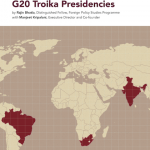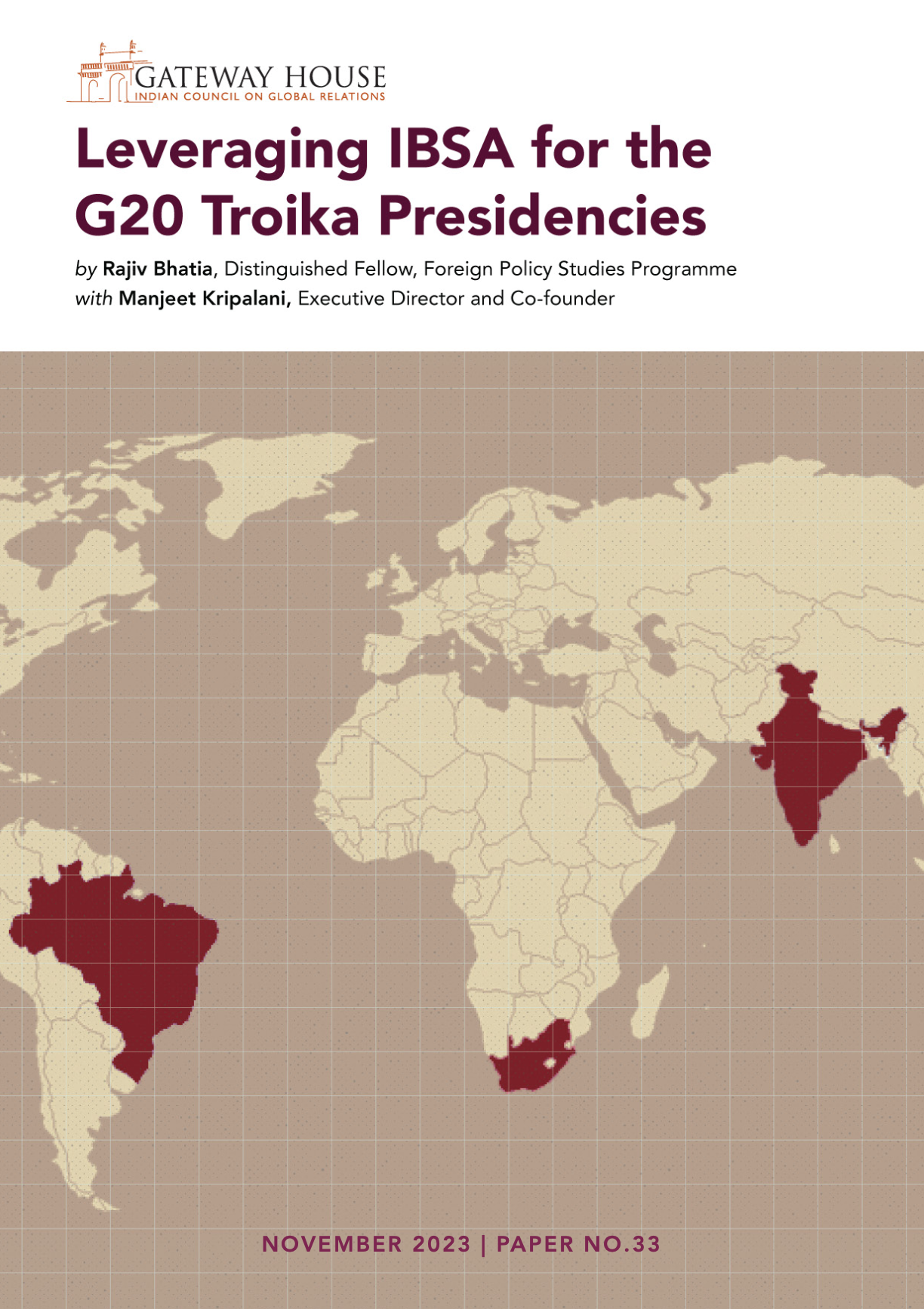India’s concerted national effort delivered a successful and effective G20 presidency year. On 1 December, 2023, the baton of the Presidency will be handed over to Brazil, and thereafter to South Africa.
India’s G20 year success was defined by the presidency’s four-fold ability to:
- Address global challenges meaningfully
- Promote the nation’s vital interests
- Play its part as the voice, advocate, and leader of the developing world or Global South
- Enhance the centrality of G20 as the premier forum for international economic cooperation and global governance
In the quest for wholesome success, an oft-overlooked but historic coincidence is that the G20 presidency will stay with the three IBSA countries – India, Brazil, and South Africa – till 30 November 2025. This is of relevance and utmost significance.
The principal thesis of this paper is that the IBSA Dialogue Forum is still relevant to its three member states even though it witnessed its heyday during the century’s first decade, followed by a relative slowdown of its activism in subsequent years. India, Brazil and South Africa should use the Forum’s past working experience, its principles and philosophy, tools and mechanisms, and above all, its natural solidarity to shape the future trajectory of the G20. This has the potential to shift the G20 away from the dominant G7 agenda and tilt it decidedly towards advancing the interests of developing and emerging economies, more appropriate for the diverse G20 grouping – now made more so by the inclusion of the African Union. The central proposition of this paper is validated by the deliberations and the outcomes of the Voice of the Global South Summits, hosted by India on 12–13 January 2023 and 17 November 2023.
The time is right for India, in consultation with the other two IBSA members to act seriously on this grouping’s triple role – policy consultation and coordination, trilateral cooperation, and tangible assistance to the Least Developed Countries (LDCs). This can be achieved by recalling the past gains of IBSA and building upon them in a practical manner as a powerful, co-ordinated G20 troika in 2024. This will ensure that New Delhi, Brasilia and Pretoria will be in a position of strength when dealing with the G7 as well as the P-5 (of the UN Security Council), which have long led global economic agendas.
You can download the PDF version of this paper here.
Rajiv Bhatia is Distinguished Fellow, Foreign Policy Studies, and a former ambassador.
Manjeet Kripalani is Executive Director, Gateway House.
This paper was exclusively written for Gateway House: Indian Council on Global Relations. You can read exclusive content here.
Support our work here.
For interview requests with the authors, or for permission to republish, please contact outreach@gatewayhouse.in.
© Copyright 2022 Gateway House: Indian Council on Global Relations. All rights reserved. Any unauthorized copying or reproduction is strictly prohibited.



